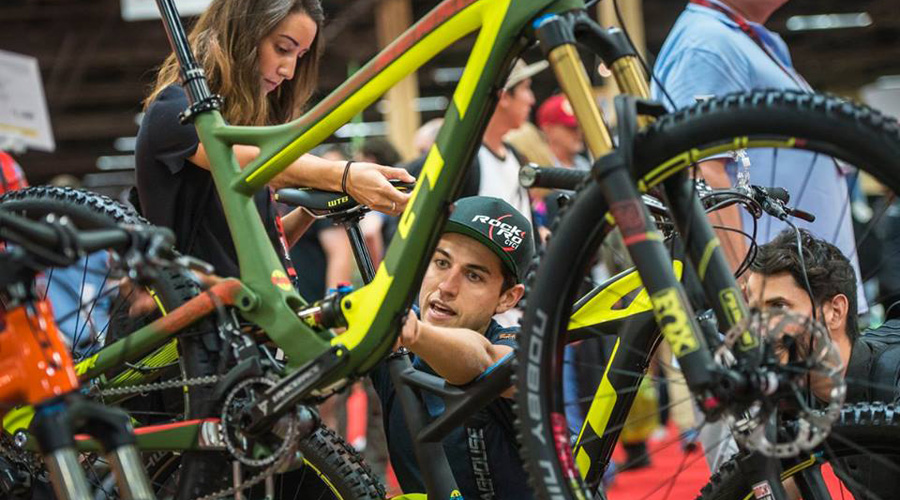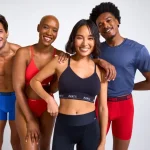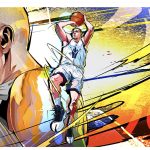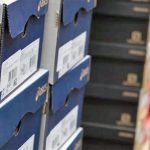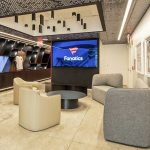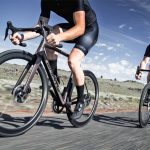The votes are in and 2016 will go down as the most challenging in decades for independent bicycle dealers (IBDs) and their suppliers.
“There is no doubt this has been one of the toughest years our industry has ever seen,” said Pat Hus, vice president of Interbike, which drew more than 20,000 attendees to Las Vegas for two days of test riding and a three-day trade show September 19-23. “It’s the toughest I’ve seen in my 35 year career.”
Larry Pizzi, who oversees IBD sales and marketing for Accell North America, did Hus one better in an interview at Raleigh’s booth at the show. He said it’s the most challenging conditions he’s seen in 40 years in the bike business.
Pizzi reviewed how U.S. vendors started the year with abnormally high inventory, how unusually early and deep discounts by three dominant companies decimated margins across the industry this spring and how nearly half the bikes in IBD stores as of June 30 were Model 2015 or older.
“When you are cutting prices 20 to 25 percent there is very little profit left,” Pizzi said of the unprecedented wave of discounting that took place this spring after Specialized Bicycle Components and Trek Bicycle Corp. slashed prices in a bid to move aging inventory. “In that situation typically, the layoffs follow and that’s exactly what’s happened in our industry.”
The discounts were immediately, albeit reluctantly, matched by Taiwan’s Giant Manufacturing Co. Together, the three companies are believed to control about 85 percent of IBD sales in the United States.
Since then, Giant has predicted the bike glut, slower growth in China and currency headwinds will cause its 2016 sales to come in flat and Specialized, SRAM and Cycling Sports Group (CSG) have all announced layoffs and/or restructurings. CSG markets Cannondale, GT, Mongoose and Schwinn bikes and Sugoi and Sombrio apparel to IBDs.
The headwinds appeared to challenge attendance at this year’s show, according to veteran attendees. Interbike confirmed early registration was down 8 percent headed into the show, but is not expected to share final attendance data for weeks.
Attendance at Interbike declined in 2015, when the number of stores operated by IBDs fell for the 14th consecutive year to 3,790, according to an annual industry overview report released by the National Bicycle Dealer Association (NBDA).
No Sugar Coating
Hus and leaders from the NBDA and the Bicycle Products Suppliers Association (BPSA) didn’t sugar coat the challenges at the annual industry breakfast that kicked off the show September 21. In his opening remarks, Hus divided the challenges into two baskets: those the industry can control and those it cannot.
In the first category he included unfavorable weather and currency and political headwinds — including the impending U.S. presidential election — which are causing some consumers and businesses to delay spending. In the second category, Hus listed declining participation, brands fighting over a shrinking market, a lack of timely and reliable point-of-sale data and the failure of IBDs to deliver a digitally savvy and inclusive customer experience.
“We can control these factors, but it’s going to take leadership and right now I think we are an industry without steering, and that’s scary,” Hus said.
Of most immediate concern to executives at the show has been a glut of bikes lingering in retailer and vendor inventories. IBD vendors entered 2016 with enough inventory in their warehouses to sustain 3.5 months of sale, up from the long-term average of 2.5 months, according to BPSA data. Despite the steep discounting this spring and the approaching delivery of Model Year 2017 bikes, that ratio remains well above average.
The Big 3
Causing even deeper anxiety is the growing consensus that the IBD channel is being overtaken by shifts in consumer shopping behavior that have fundamentally reshaped, or even eliminated, other specialty retail channels such as consumer electronics, music and books.
The sense of foreboding has intensified in recent years as each of the Big 3 brands pulled out of Interbike. All three now run dealer events earlier in the summer, where they are able to command much of their dealers’ open-to-buy for not just bikes but apparel, footwear and aftermarket parts and accessories. That has left the more than 1,000 brands that exhibit at Interbike to fight over about 15 percent of the market.
IBDs are seeing growing competition not only from online retailers including Amazon.com, but their vendors, too. Trek unveiled a click-and-collect plan in August 2015 that seeks to fulfill through brick-and-mortar dealers and Specialized and Giant are expected to unveil their own direct-to-consumer platforms. And in mid August, Advanced Sports International, parent to Fuji, SE Kestral, Breezer and Phat Cycles, purchased Performance Bicycle to give it a foothold in the retail business.
Shimano, another apex supplier, has disrupted the market by permitting U.K.-based online retailers such as Chain Reaction and Wiggle to ship direct to U.S. customers at prices that are often below IBDs’ costs.
“They are selling everything at less than my cost,” said Tony Martinez, manager for Nick’s Cycling and Fitness of West Burlington, Iowa. “My Shimano sales have been declining steadily this year due to that situation and they don’t seem too eager to rectify it. There is a lot more SRAM red on my wall than Shimano blue.”
Higher Anxiety
Anxiety levels surged Monday when Accell North America, which sells Raleigh and Diamondback bikes to IBDs, announced it would begin offering consumers who bought bikes at RaleighUSA.com the option of fulfilling their order through mobile bike shops franchised by Beeline Bikes. In areas served by a Beeline franchisee, consumers will now be presented with two fulfillment options.
After clicking the “buy” button, they will be asked to enter their zip code and shown a list of Raleigh dealers in their area ranked by various criteria, including their status as a Raleigh partner and whether they can display the inventory available in their shops. The screen will also offer fulfillment though Beeline Bikes for a fee of $79. While Accell NA is piloting the program with Raleigh, it anticipates offering Beeline as a fulfillment option for all its brands in North America, which include Red Line, Diamondback and Lapierre.
The partnership provides a way for Accell to deliver a professionally built bike for the growing number of consumers who prefer to order online and have it delivered to their home or office.
“We don’t want to provide an out-of-the-box experience,” said Pizzi. “If there is anything that has kept buying a bike a special experience, it is the service element and that’s exactly why we like Beeline. I can go out for a ride in my neighborhood almost any day of the week and see someone driving a bike with the fork installed backwards.”
Accell’s Monday announcement triggered vehement and predictable denunciations from dealers, including f-bomb-laden emails to Accell NA executives. After all, the deal discredits a widely held notion among IBDs and ski and snowboard retailers that they are less vulnerable to online competition than other specialty retailers because the brands need them to build, install and service their gear.
As the show neared its end, however, some of Accell’s top-performing dealers were warming to the idea.
“Today, dozens of IBDs came to us and expressed interest in buying a franchise,” Beeline Bikes Co-Founder and CEO Pete Buhl told SGB September 22.
“We are trying to pull dealers into the new reality,” added Pizzi. “In discussions with some retailers they’ve figured out it’s a great value. The ones out there hoping next year will be better are the ones who are not going to make it.”
Check out more SGB coverage from Interbike, including the latest bike product trends, here.
Photo courtesy Interbike

